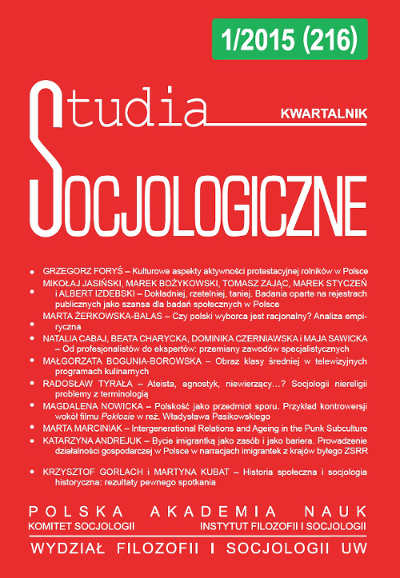Czy polski wyborca jest racjonalny? Analiza empiryczna
Is the Polish Voter Rational? An Empirical Analysis
Author(s): Marta Żerkowska-BalasSubject(s): Social Sciences
Published by: Instytut Filozofii i Socjologii Polskiej Akademii Nauk
Keywords: electoral participation; rational voter; rational choice theory; costs; benefits
Summary/Abstract: According to the rational choice model, a voting decision results from the calculation of the costs and benefits of voting. A voter driven by utility maximization, votes for the party that brings him the highest benefits (Downs 1957). The voter abstains, however, if she does not perceive any of the parties as better than the others, or if the costs of voting exceed the benefits. The aim of the present article is to verify whether Polish voters decide to vote on the basis of rational evidence, provided the socio-demographic variables and party identification are being controlled in the research process. The results of the analyses corroborate the hypotheses related to rational choice determinants of voter turnout in Poland. The respective elements of rational calculation are statistically significant determinants of voter turnout but the model only provides partial explanation of the phenomenon.
Journal: Studia Socjologiczne
- Issue Year: 216/2015
- Issue No: 1
- Page Range: 73-97
- Page Count: 25
- Language: Polish

